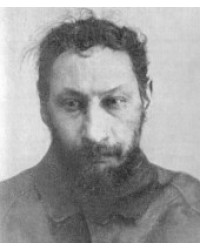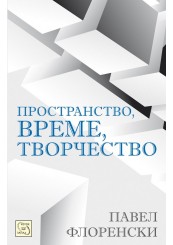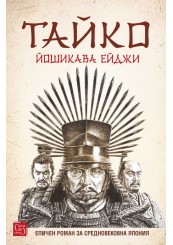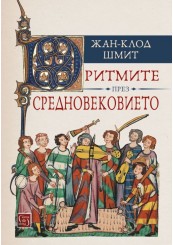Pavel Florensky

Pavel Alexandrovich Florensky (1882–1937) was a Russian Orthodox theologian, priest, philosopher, mathematician, physicist, electrical engineer, inventor, polymath and neomartyr.
Florensky completed his high school studies (1893-1899) at the Tbilisi classical lyceum, where several companions were later to distinguish themselves, among them the founder of Russian Cubo-Futurism, David Burliuk. In 1899, Florensky underwent a religious crisis, connected to a visit to Leo Tolstoy caused by an awareness of the limits and relativity of the scientific positivism and rationality which had been an integral part of his initial formation within his family and high school. He decided to construct his own solution by developing theories that would reconcile the spiritual and the scientific visions on the basis of mathematics. He entered the department of mathematics of Moscow State University and studied under Nikolai Bugaev, and became friends with his son, the future poet and theorist of Russian symbolism, Andrei Bely. He was particularly drawn to Georg Cantor's set theory.
He also took courses on ancient philosophy. During this period the young Florensky, who had no religious upbringing, began taking an interest in studies beyond "the limitations of physical knowledge" In 1904 he graduated from the Moscow State University and declined a teaching position at the university: instead, he proceeded to study theology at the Ecclesiastical Academy in Sergiyev Posad. During his theological studies there, he came into contact with Elder Isidore on a visit to Gethsemane Hermitage, and Isidore was to become his spiritual guide and father. Together with fellow students Ern, Svenitsky and Brikhnichev he founded a society, the Christian Struggle Union (Союз Христиaнской Борьбы), with the revolutionary aim of rebuilding Russian society according to the principles of Vladimir Solovyov. Subsequently he was arrested for membership in this society in 1906: however, he later lost his interest in the Radical Christianity movement.
€5.72 (11.20 лв.) €7.16 (14.00 лв.) Ex Tax: €5.25 (10.27 лв.)




